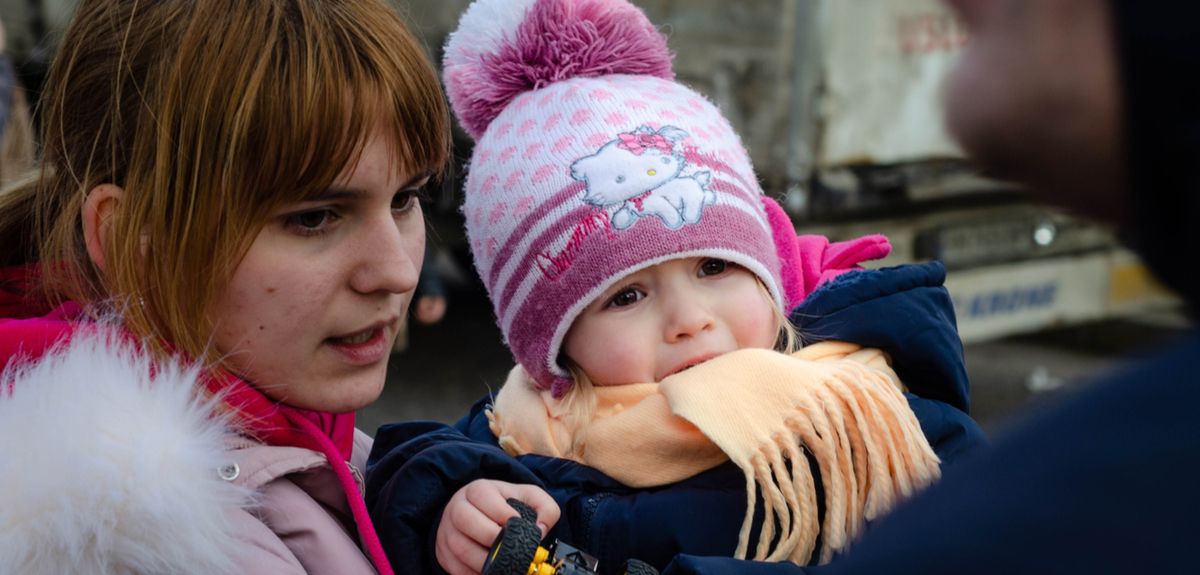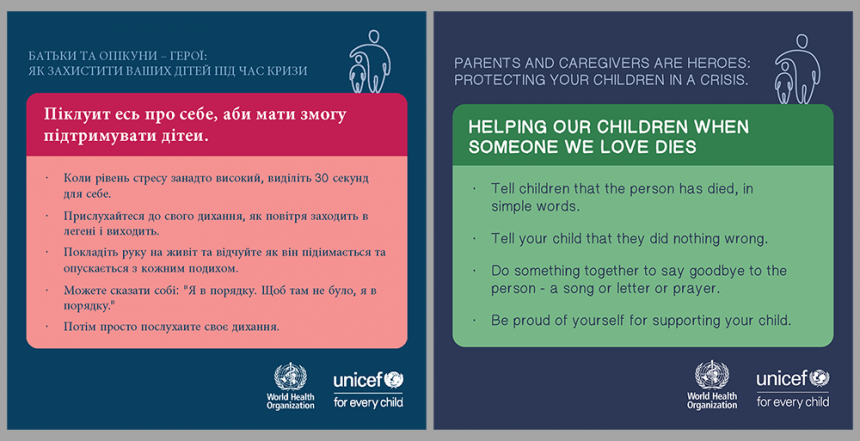
Ukraine crisis: new research-led support for 'hero' parents and caregivers
Parents and caregivers are heroes: protecting your children in the crisis
Responding to the crisis in Ukraine, Oxford University parenting experts have been working against the clock with international colleagues, to produce easy-to-use information for families on supporting children in the current emergency.
Based on evidence-based research, the advice is initially being released on social media – and is sponsored by a range of organisations and charities, including the WHO and UNICEF.
The guidance is available in English, Ukrainian and Russian, and can be downloaded for use by parents and other organisations:
 Advice in English and Ukrainian
Advice in English and UkrainianThe Oxford team, whose COVID-19 parenting guidance was downloaded some 210 million times during the pandemic, has been working with international partners to put together the help. It is open source and for anyone caring for a child – including children in residential care. Particular thanks go to the Ukrainian and Russian volunteers who have been working on this around the clock.
Caring for children during conflict, when escaping conflict, crossing borders and afterwards is incredibly difficult... Initial thoughts are to provide a focused, limited set of tips, in the most easily accessible formats for Ukraine and neighbouring countries
According to the information, 'Caring for children during conflict, when escaping conflict, crossing borders and afterwards is incredibly difficult. Parents and caregivers are under extreme stress, normality is vastly disrupted, and violence is pervasive. Many are coping with bereavement, separation from family, ongoing trauma, and victimisation when crossing borders. Initial thoughts are to provide a focused, limited set of tips, in the most easily accessible formats for Ukraine and neighbouring countries.'
The six pages give clear information and recommendations to people facing the crisis, under the headings:
- Take care of yourself, so you can support your children
- Help your child cope with crisis
- Positive time with your child
- When stress makes us angry
- Helping our children when someone we love dies, and
- Building your child’s strength in a crisis
 Statins do not cause the majority of side effects listed in package leaflets
Statins do not cause the majority of side effects listed in package leaflets